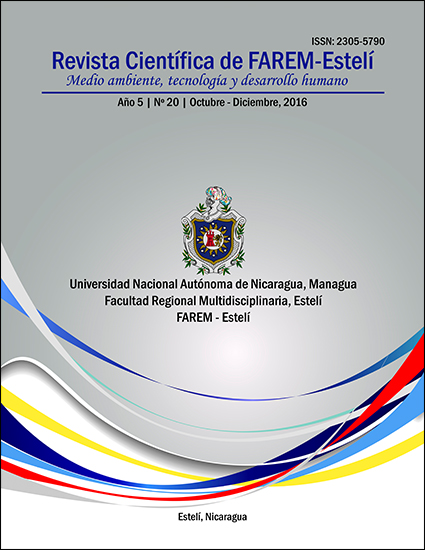Application of the Food Production Support Program by Participants in the Municipality of Condega in 2015
Abstract
The target for this research is the Food Production Support Program “Hambre Cero” (Zero Hunger) supported by the government of Nicaragua with participant families living in the municipality of Condega and that were recipients of the Food Production Support Programme in 2015. The investigation is quantitative. The objective of this thesis is to identify the strategies the participants implement as they manage the materials received through the support as well as to identify the main factors that impacted the sustainability of these resources, as a way of proposing a strategy that allows for improved resource management: increase the production of food for home consumption, sale of excess production and strengthen their organizational capacity, which will permit increased sustainability and reduce poverty in the family economy. Contribute to the social programs and the impoverished rural families. The theoretical axis are: poverty, public programming for women, social programming for reducing poverty, and management strategies. This thesis is important for Nicaragua. Although there are already a few studies covering social programs and their contribution to poverty reduction, there are few studies that emphasize how families manage the program resources, especially women.
Keywords: Production Bonus, Protagonists, Administration and Sustainability.

